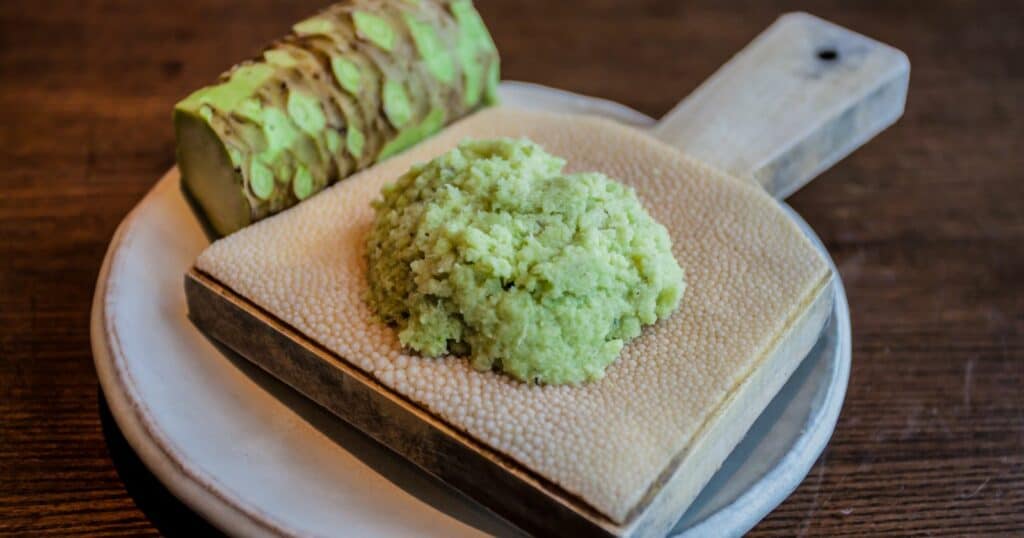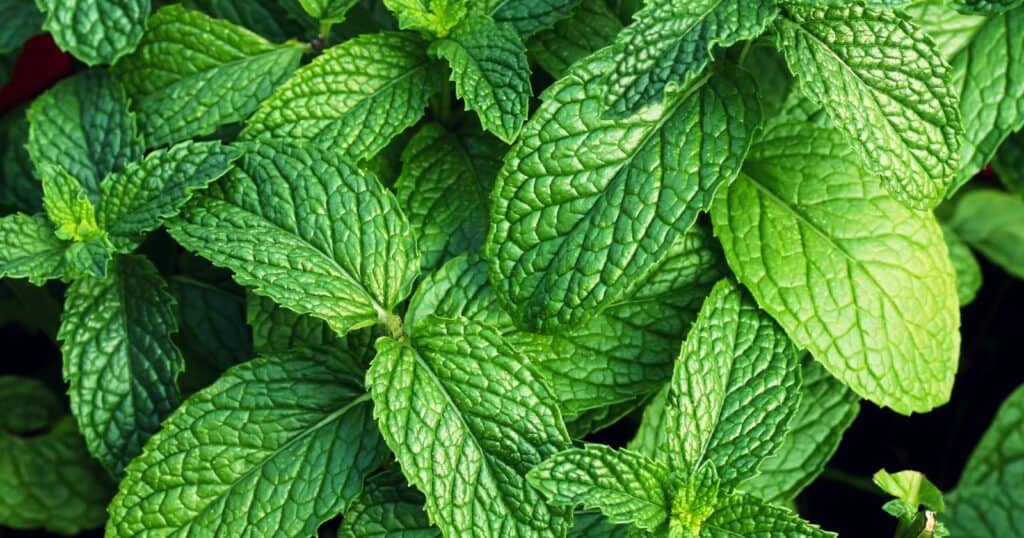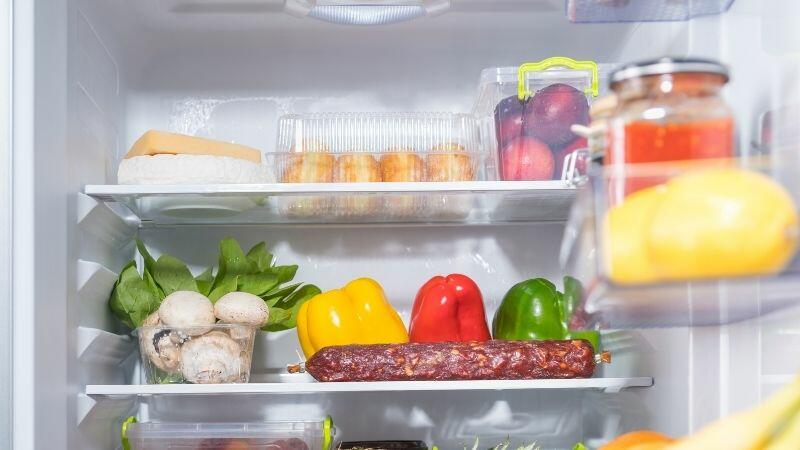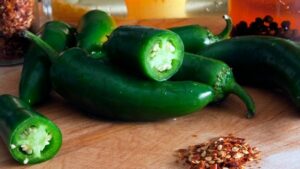If you’ve ever felt like spicy foods lose their kick when cooled down, you’re onto something. Chilies, curries, and other fiery dishes often taste much milder after some time in the fridge. So what gives?
The short answer is yes – spicy foods do become less spicy when cold.
There are a few scientific reasons behind this:
- Spice chemicals called “phytochemicals” spread slower at lower temperatures. This makes them less stimulating to your taste buds.
- Your perception changes more than the actual
spice level. Coldness makes it harder for your brain to detect spices. - Not all spices follow this rule. Some “cooling” spices like mint actually get more intense when cold.
The details get more complex, but the takeaway is clear: In most cases, chilling down spicy food reduces the perceived spiciness. Read on to learn exactly why and how big of a temperature drop is needed before you notice a difference.
Hot Food Releases More Spice Flavor
Most spices contain chemicals called “phytochemicals.” These are the active ingredients that give each
When food is hot, these phytochemicals get energized. They spread quickly over your taste buds and receptors. This makes the flavors really pop, and your brain says “Ouch, that’s hot!”
But when food cools down, the phytochemicals slow way down. They don’t spread as readily. Your receptors don’t get as much stimulation, so your brain doesn’t register as much heat.
It’s like how chemical reactions speed up at higher temperatures. The spices actually behave a lot like enzymes in this way.
Your Perception Changes with Temperature
Here’s another fascinating part. The inherent spiciness doesn’t disappear when the food gets cold. The phytochemicals are all still in there, just moving slower.
It’s actually your perception that changes. You simply can’t detect the spiciness as much thanks to the reduced reaction rate.
So the food hasn’t lost any real spiciness. But to your tongue, it sure seems like it has!
How Cold Must Food Get to Reduce Spiciness?
Okay, so we know temperature impacts how spicy foods taste. But how cold does the food need to be before you notice a real difference?
After Sitting Out for a Few Hours
Letting spicy food sit out for a couple hours usually won’t make it less spicy. Room temperature is still pretty close to the inside temperature of your mouth.
At room temp, the food may become slightly more tolerable, especially if it contains capsaicin from chili peppers. But the spiciness doesn’t change too dramatically yet.
After Refrigerating
Putting spicy food in the fridge has a much bigger effect. Refrigerators are usually between 35-40°F. This lower temperature really slows down those phytochemicals.
The colder the food, the less
And bonus – reheating refrigerated spicy food often brings back the original fire!
Does Freezing Spicy Food Make it Less Spicy?
We’ve covered how chilling and refrigerating spicy foods reduces their perceived spiciness. But what about freezing? Does icy cold freezer storage zap flavor even more?
The answer is yes – to an extent. Freezing temperatures (below 32°F) can mute spices further compared to the fridge. Here’s why:
- Extreme cold causes greater slowing of
spice phytochemicals. This reduces their diffusion and interaction with receptors. - Ice crystals that form during freezing can physically disrupt plant cells containing flavor molecules. This liberates fewer phytochemicals when thawed and eaten.
- Some volatile aromatic compounds are lost through evaporation during prolonged freezing.
However, freezer time doesn’t eliminate all spiciness. Cooking, ingredient quality, and other factors still matter. And as mentioned, certain “cool” spices may thrive when frozen.
Pro tips for freezing spicy dishes:
- Use freezer-friendly containers to limit air exposure and evaporation.
- Allow space for expansion to minimize cell damage from ice.
- Avoid repeated thaw/refreeze cycles.
So while the freezer mutes spiciness more than the fridge, moderate freezing won’t ruin a good spicy recipe. You can still thaw and enjoy!
Hot Spices vs Cold Spices
While cooling down food reduces the kick of most spicy flavors, some spices actually get more pronounced when served cold. What gives?
It all comes down to the inherent nature of the
Hot Spices

Spices like chili peppers, wasabi, and black pepper contain chemicals that trigger a “hot” or “spicy” sensation in your mouth. Some examples are capsaicin and isothiocyanate.
Lowering the temperature slows down these chemicals, making hot spices seem milder when cold.
Cold Spices

On the other hand, some spices have a natural cooling effect on the body. These “cold” spices contain phytochemicals that provide a minty or cooling sensation.
Examples are mint, fennel, turmeric, and cumin. The phytochemicals in these spices often become more stimulating when foods are chilled.
So while piping hot chilies lose their fire when cold, icy mint or fennel dishes may pack more flavor. The impact of temperature depends on the inherent properties of the
Does Spicy Food Cool You Down?
Spicy dishes can make you break a sweat and reach for a cold drink. So it may seem counterintuitive that spicy foods actually cool your body temperature. But there is some truth to this phenomenon.
When you eat spicy food, your body senses the “heat” as a threat. It responds by kicking into cooling mode to protect itself. Your heart rate goes up and releases sweat to maintain homeostasis.
In warm climates, this extra sweat production and blood circulation to the skin helps dissipate excess body heat. That’s why spicy foods are common in hot regions like India, Thailand, and Mexico.
However, this cooling effect only works in the short term. Over hours or days of eating spicy food, your body adapts and stops ramping up sweat production.
And beware – spicy foods can also raise core body temperature by activating your metabolism and stress response. So the relationship is complex.
In summary:
- Eating spicy foods can briefly cool you down thanks to increased sweating.
- But over time, your body adapts to the “heat” so you lose this cooling response.
- Extremely spicy foods may raise overall body temperature from metabolic effects.
Moderately spicy foods are likely your best bet for staying cool!
Should You Eat Spicy Food Hot or Cold?
There’s no right or wrong temperature for spicy dishes. It depends on personal taste and the types of spices used. Some like spicy foods piping hot, while others prefer them chilled.
The overall takeaway is that temperature impacts how our taste buds perceive spices. Heat excites phytochemicals while cold calms them down. So next time your mouth feels fiery, try cooling down your food for some relief!





